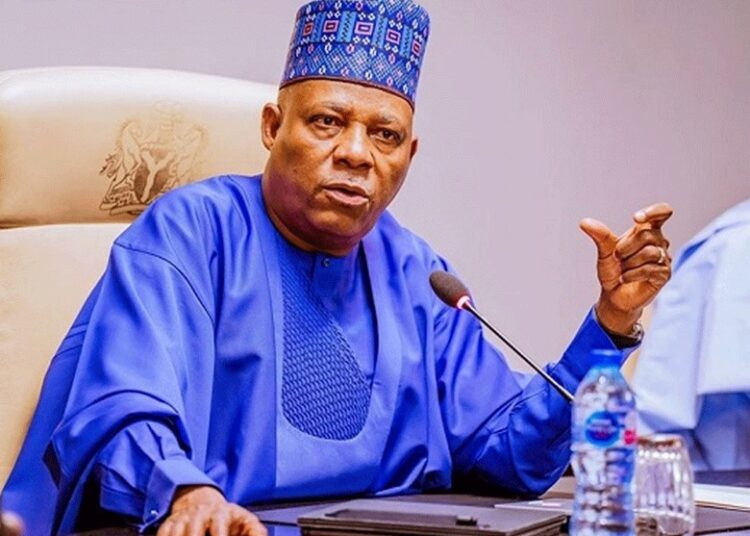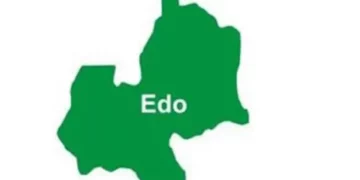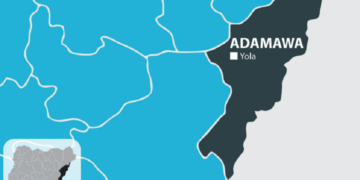Vice President Kashim Shettima and other economic stakeholders have called on African nations to deepen the adoption of Islamic finance as a tool for inclusive and sustainable economic transformation across the continent.
This is even as Nigeria has raised over N1.4 trillion sovereign sukuk issuance, which funded 124 critical road projects nationwide, is a notable example of the potential of Islamic finance in infrastructure development.
Stakeholders made the call while addressing delegates at the seventh African International Conference on Islamic Finance (AICIF), which was held yesterday in Lagos. The Metropolitan Law and Metropolitan Skills Limited organised the Conference in collaboration with the Securities and Exchange Commission (SEC).
Speaking on the theme ‘Africa Emerging: A Prosperous and Inclusive Outlook’, the Vice President said Africa’s demographic advantage must translate into equitable prosperity, stressing that the continent’s progress will be measured by growth and inclusion.
Representing the vice president, the Special Adviser to the President on Economic Matters, Dr Tope Fasua, highlighted Nigeria’s recent economic reforms under President Bola Tinubu’s Renewed Hope Agenda as key drivers of stability and investor confidence.
According to Shettima, Nigeria has unified its exchange rate, rationalised subsidies, modernised tax and customs systems, and opened new gateways for trade and investment reforms, which have lifted reserves above $40 billion and earned favourable ratings from Fitch and Moody’s.
“These outcomes reaffirm Nigeria’s position as an anchor of the AfCFTA’s $3.4 trillion market and a driver of Africa’s growth,” he said.
The vice president emphasised that Islamic finance provides a credible framework for promoting shared prosperity, rooted in ethics, fairness, and social responsibility.
Shettima observed that countries like Egypt, Senegal, Kenya, and South Africa are developing regulatory frameworks for Islamic banking, green sukuk, and socially responsible investments.
He stated that, by 2030, the share of Islamic finance in Africa’s capital markets is projected to expand significantly, urging policymakers to sustain reforms that strengthen transparency, governance, and investor protection.
The conference chairperson, Ms Ummahani Amin, said that AICIF was conceived as a platform for collaboration and knowledge sharing to advance Islamic finance as a viable alternative source of funding for Africa’s socio-economic needs.
She noted that, while Islamic finance assets globally reached $3.88 trillion in 2024, Africa still needs to harness its full potential to close the continent’s annual infrastructure financing gap of up to $170 billion.
She emphasised that challenges such as limited liquidity, weak market infrastructure, and inadequate investor education must be addressed for Islamic finance to reach its potential.
The chairman of SEC, Mairiga Katuka said Nigeria’s non-interest capital market had grown rapidly under the Capital Market Masterplan (2015–2025), with sovereign sukuk raising over N1.4 trillion and funding 124 critical road projects nationwide.
Katuka noted that, Nigeria now had 19 registered halal mutual funds managing over N112 billion in assets, up from one fund in 2008, pledging the SEC’s commitment to evolving regulatory frameworks for innovations such as innovative sukuk, tokenisation, and blockchain-enabled transparency.
Also, Emir of Kano and former governor of the Central Bank of Nigeria (CBN), Muhammadu Sanusi II, urged Islamic finance institutions across Africa to focus more on supporting small and medium enterprises (SMEs) in underserved communities as a pathway to achieving shared prosperity and sustainable development.
Sanusi emphasised that Islamic finance can only make a meaningful impact when it directly addresses the financial exclusion of small businesses and vulnerable groups.
The Emir underscored the need for Islamic financial institutions to go beyond conventional models by extending services to the grassroots, where most of Africa’s unbanked population resides.
He called for bold strategies to bridge cultural and social barriers that have historically hindered access to finance, particularly for women.
Sanusi reiterated that inclusive finance remains central to Africa’s economic transformation, urging Islamic finance stakeholders to leverage their equity, risk-sharing, and social responsibility principles to foster a more just and prosperous continent.





